All stories
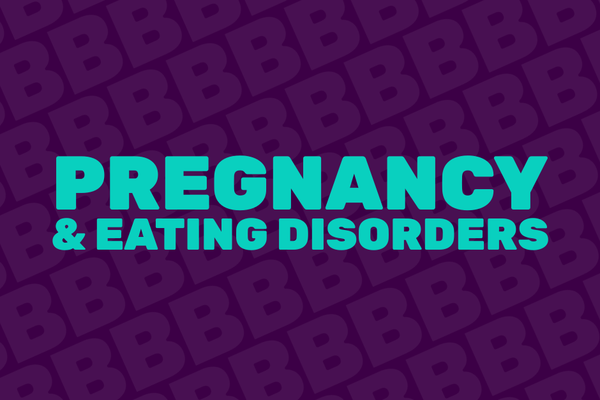
Your Voice, Your Strength - Your Experiences of Pregnancy or Postpartum and Eating Disorders
Giving you the opportunity to share your experiences of eating disorders and pregnancy or postpartum.
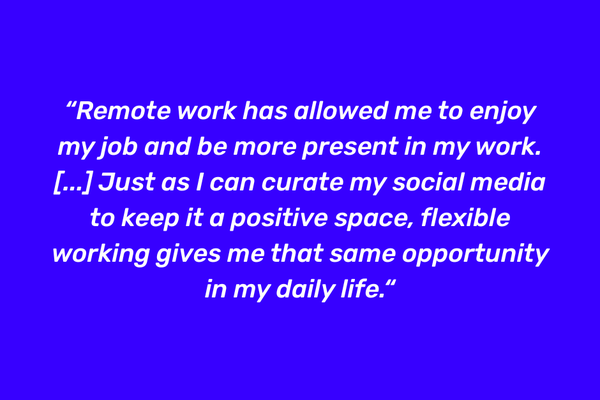
Recovery and remote working - Sophie's story
Conversations made me reflect on my own experience and how remote work has been incredibly beneficial for my mental health.
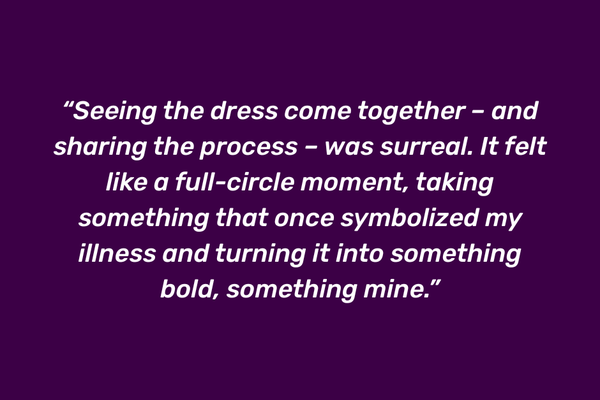
Estranha's Twogether Fundraiser
Seeing the dress come together – and sharing the process – was surreal. It felt like a full-circle moment.
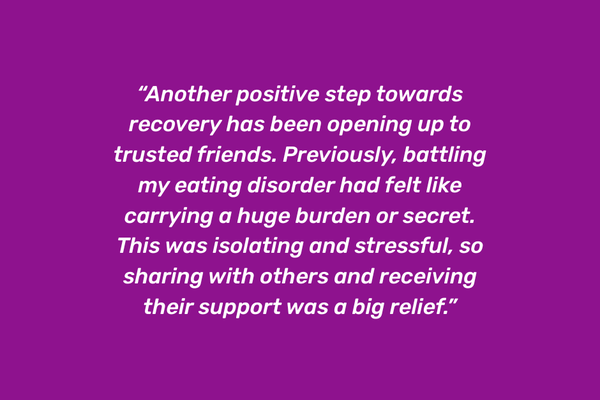
Recovery Hope - Bee's story
I am sharing my story in the hope that others may find it relatable or helpful to their own recovery journeys.
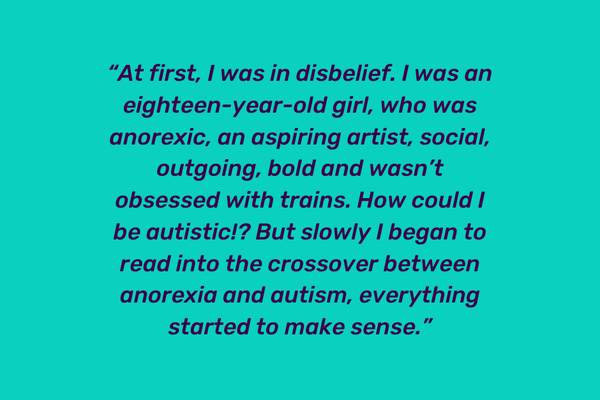
I didn’t know the real reason why this all felt so wrong. I felt broken.
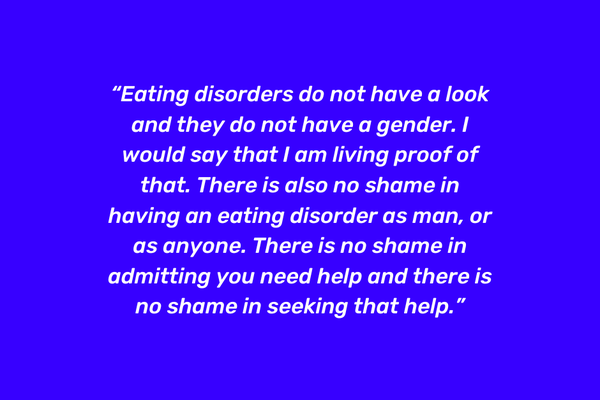
One Size Does Not Fit All - James’ Story
Eating disorders do not have a look and they do not have a gender. I would say that I am living proof of that.
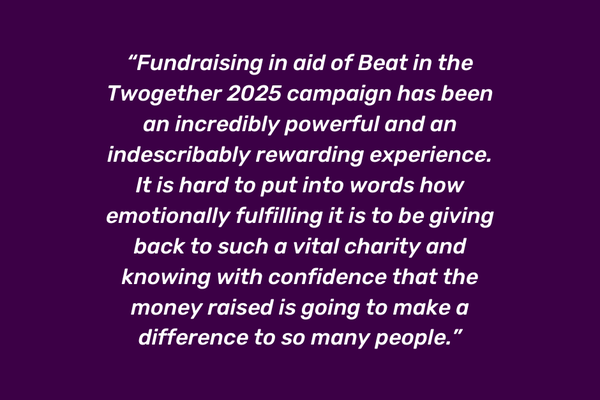
Abbie's Twogether Fundraiser
Fundraising for Beat in the Twogether 2025 campaign has been an incredibly powerful and an indescribably rewarding experience...
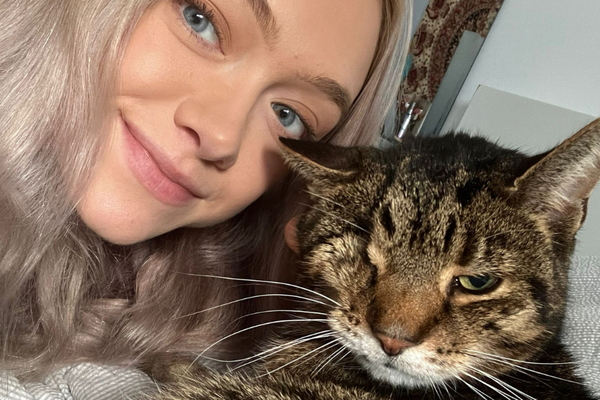
Here is part two of how your pets supported you through your recovery.
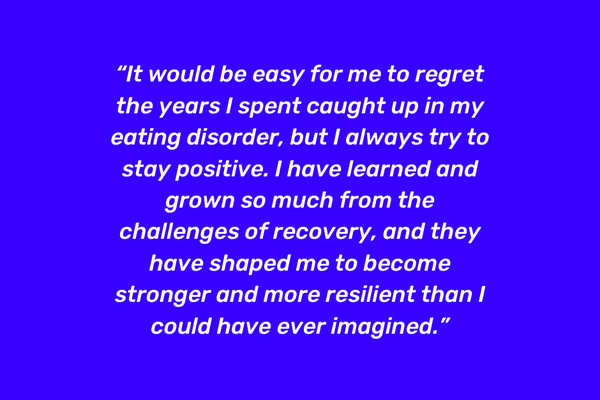
Finding me again in eating disorder recovery - Georgia’s story
Rebuilding your identity in recovery can be daunting - here I share some tips that helped me find the old and new me in recovery
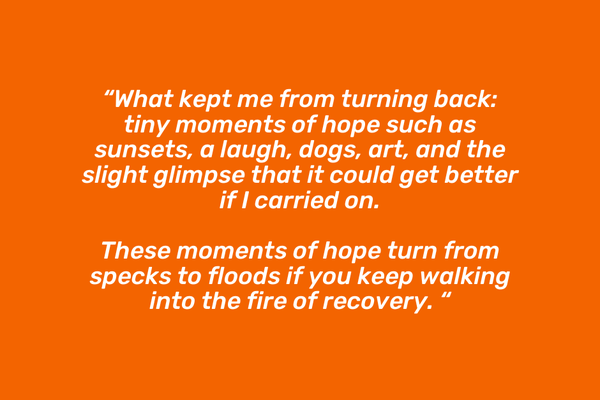
Francesca's story - I promise one day you’ll feel golden
Two years ago, I gradually gathered bravery to try to get better. I did not think that I would get there...
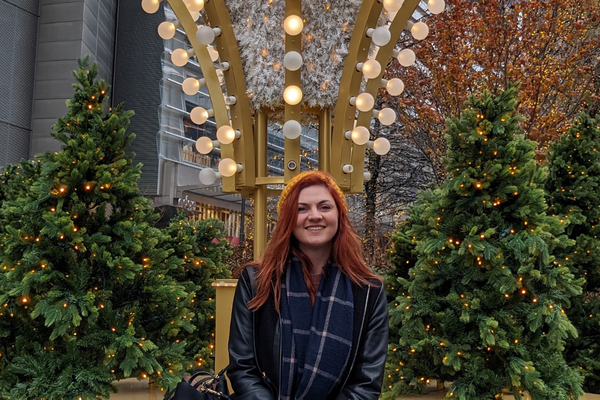
'The Beat Helpline... it's life-changing' - Amelie's story
Amelie shares her experience of anorexia recovery and the impact of our Helpline.
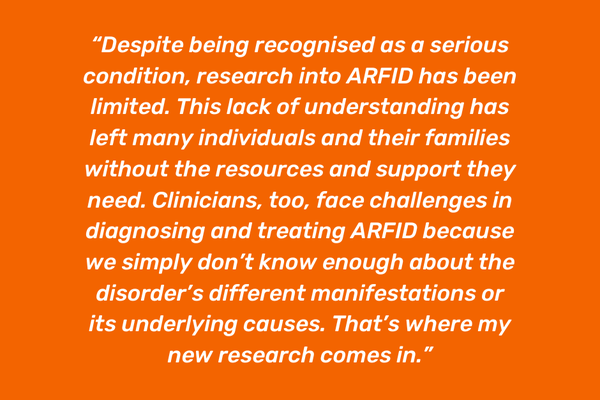
Despite being recognised as a serious condition, research into ARFID has been limited.